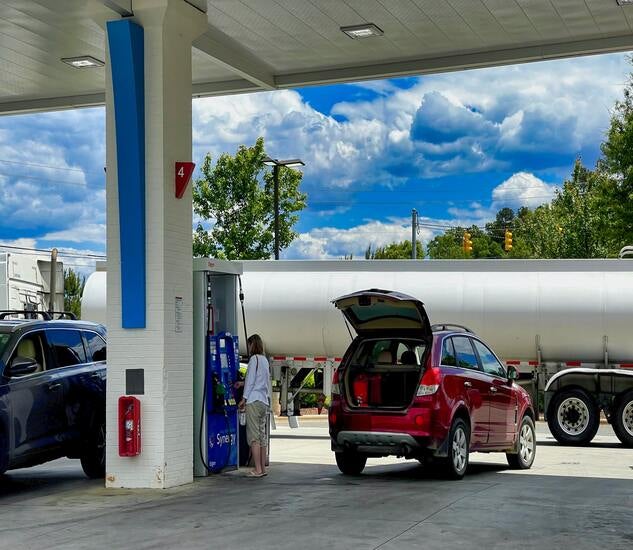
The UK’s Committee on Climate Change (CCC) published a report claiming that the UK can end its contributions to global warming within 30 years.
The Net Zero – The UK’s contribution to stopping global warming report is a reassessment of the UK’s long-term emissions targets, in response to requests from the governments of the UK, Wales and Scotland. In the report, the CCC suggests a “net-zero” target for the UK by 2050, ten years after the Climate Change Act became law and four years after the UK signed the Paris Agreement.
In a statement, the CCC said: “This is a crucial time in the global effort to tackle climate change. Global average temperature has already risen by 1°C from pre-industrial levels, driving changes in our climate that are apparent increasingly.
“In the last ten years, pledges to reduce emissions by the countries of the world have reduced the forecast of global warming from above 4°C by the end of the century to around 3°C. Net-zero in the UK would lead the global effort to further limit the rise to 1.5°C.”
According to the CCC, Wales has slightly lower opportunities to remove pollution than the UK as a whole while Scotland has greater potential to reduce emissions than the UK overall.
How well do you really know your competitors?
Access the most comprehensive Company Profiles on the market, powered by GlobalData. Save hours of research. Gain competitive edge.

Thank you!
Your download email will arrive shortly
Not ready to buy yet? Download a free sample
We are confident about the unique quality of our Company Profiles. However, we want you to make the most beneficial decision for your business, so we offer a free sample that you can download by submitting the below form
By GlobalDataThe committee also noted that achieving net-zero emissions in the UK is now economically feasible due to falls in cost for “key zero-carbon technologies,” suggesting that its targets be put into law as soon as possible.
Suggestions in the report for reducing emissions include developing low-carbon infrastructures across a range of sectors, ramping up existing environmental policies and reviewing distribution of costs for technologies such as offshore wind.
CCC chair Lord Deben said: “We can all see that the climate is changing and it needs a serious response. The great news is that it is not only possible for the UK to play its full part – we explain how in our new report – but it can be done within the cost envelope that Parliament has already accepted.
“The Government should accept the recommendations and set about making the changes needed to deliver them without delay.”
The oil and gas industry has begun to react to the report, Oil & Gas UK CEO Deirdre Michie said: “This report provides a balanced and thoughtful blueprint towards a lower carbon future, with our industry at the heart of a managed transition. The recommendations are rooted in practical choices that need to be made and recognise that achieving such reductions are challenging and have a cost.
“We stand ready to work constructively with governments, regulators and other industries in their response to the recommendations of the CCC report so that together we can deliver solutions that achieve the reductions required, without sacrificing security and affordability of energy supply for consumers and which do not disadvantage UK industries against their international competitors.”
Similarly, other energy groups have welcomed the report, but provided caution. GMB Union national secretary for energy Justin Bowden said: “The implications of the CCC Report reach into every home, job, business and nook and cranny of our lives and society. The Government itself and Parliament must now take direct responsibility for the economic and industrial consequences of the future political decisions that are required.
“This must happen before, for example, we maroon new homes off of the gas grid when a switch to hydrogen is both logical and a recommendation from the CCC Report.
“The recent resignation of the fracking commissioner shows just how big the gap is between political decisions and the economic and industrial consequences of those decisions. That cannot be allowed to happen with the decarbonisation of our economy.”






